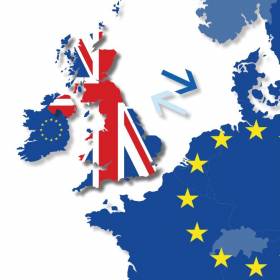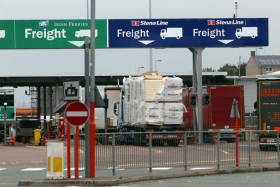Displaying items by tag: Brexit Border
The British Ports Association has responded to the UK Government’s “two borders for four years” Brexit proposals which was announced by the Conservative Party this week.
Richard Ballantyne, Chief Executive of BPA said “The majority of Northern Ireland’s trade is with Great Britain and a border in the Irish Sea would be extremely challenging for the ports in Northern Ireland and those in England and Scotland who have freight routes. Ironically also in a ‘no deal’ situation there could be displacement issues for Welsh ports.
We recognise the sensitivities and issues around the land border and have always said that the best resolution and the best way to meet the Government’s commitment to frictionless trade is a deal that has no customs or regulatory checks at all, anywhere.”
Afloat.ie adds that Belfast Harbour is to host the BPA's annual Conference between 15-18 October.
#FerryNews - At the centre of the Conservative Party is an ongoing spat over post-Brexit customs arrangements that shows a solution remains out of reach.
As the Daily Post writes, Theresa May’s preferred new “customs partnership” model was instantly shot down in flames by Brexiteers – showing agreement within the cabinet is proving elusive, never mind completing a deal with the EU.
At the frontline of this whole battle is the port of Holyhead - often forgotten when the talk at a UK level has all been about the land border between Ireland and Northern Ireland.
Port Authority Stena Line say Holyhead’s growth has been down to the “open ports policy” and any delay as a result of custom or border checks could disturb the whole business mode.
Since the completion of the EU’s Single Market in 1993 and the removal of checks between Wales and Ireland, the volume of freight travelling between Holyhead and Dublin has increased by 694 per cent.
For much more on this story click here.






























































